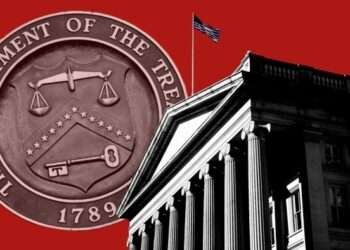The United Nations and its agencies have responded to President Donald Trump’s executive orders withdrawing the United States from the World Health Organization (WHO) and the Paris Climate Agreement.
The move, signed into action at the White House, has raised alarms about potential setbacks to global public health and climate change efforts. WHO spokesperson Tarik Jasarevic expressed regret over the decision.
“The WHO regrets the announcement that the United States of America intends to withdraw from the Organization…We hope the United States will reconsider.”
Tarik Jasarevic
The US, a founding member of the WHO since 1948, is required to provide one year’s notice before officially leaving.
This is not the first time the US has attempted to sever ties with the WHO. A similar move during Trump’s first term in 2020 was reversed under President Joe Biden’s administration. Jasarevic emphasized the vital role the WHO plays globally, including in the US.
“WHO plays a crucial role in protecting the health and security of the world’s people, including Americans, by addressing the root causes of disease, building stronger health systems, and detecting, preventing and responding to health emergencies.”
Tarik Jasarevic
The US is the WHO’s largest donor, contributing 18% of its budget in 2023. The financial implications of the withdrawal are expected to be significant, but Jasarevic noted that further analysis is needed to fully understand the impact.

Climate Concerns Resurface
In addition to leaving the WHO, Trump’s decision to withdraw from the Paris Climate Agreement has reignited concerns about global warming. Clare Nullis, spokesperson for the UN World Meteorological Organization (WMO), highlighted the urgency of addressing climate change.
“The need for all countries to respect the accord is pretty obvious,” Nullis said, pointing out that 2024 was the hottest year on record, with global temperatures averaging 1.55°C above pre-industrial levels. “It is the defining challenge of our time.”
The United States has borne the brunt of climate-related disasters, according to WMO data. Since 1980, the country has experienced 403 weather and climate events with damages exceeding $1 billion each, totaling over $2.915 trillion. Recent wildfires in Los Angeles serve as a stark reminder of the escalating costs of inaction.
UN humanitarian affairs office (OCHA) spokesperson Jens Laerke also underscored the indispensable role of the WHO in crisis zones like Gaza, Yemen, Afghanistan, and Sudan. “WHO is in places where others cannot go,” Laerke said, adding that its work has contributed to longer, healthier lives worldwide.
The UN Spokesperson’s Office issued a statement reiterating the importance of the Paris Agreement. “The transformation envisaged in the Paris Agreement is already underway,” the statement read, citing the rise of renewable energy as a pathway to sustainable economic growth.
“The Secretary-General remains confident that cities, states, and businesses within the United States — along with other countries — will continue to demonstrate vision and leadership by working for the low-carbon, resilient economic growth that will create quality jobs and markets for 21st-century prosperity.”
UN Spokesperson’s Office
The executive orders mark a return to the policies of Trump’s first term, which ended in January 2021. Critics argue that these decisions undermine US leadership in critical global issues, from health crises to climate change.
The UN’s call for the US to remain engaged reflects a broader concern about the ripple effects of the withdrawals. As the world grapples with health and environmental challenges, the absence of US leadership could leave a void difficult to fill.
The coming months will reveal whether the US, under Trump’s direction, will reconsider its stance or move forward with these controversial withdrawals.
READ ALSO: Fitch Upgrades Outlook for Ghanaian Banks Amid Economic Recovery





















